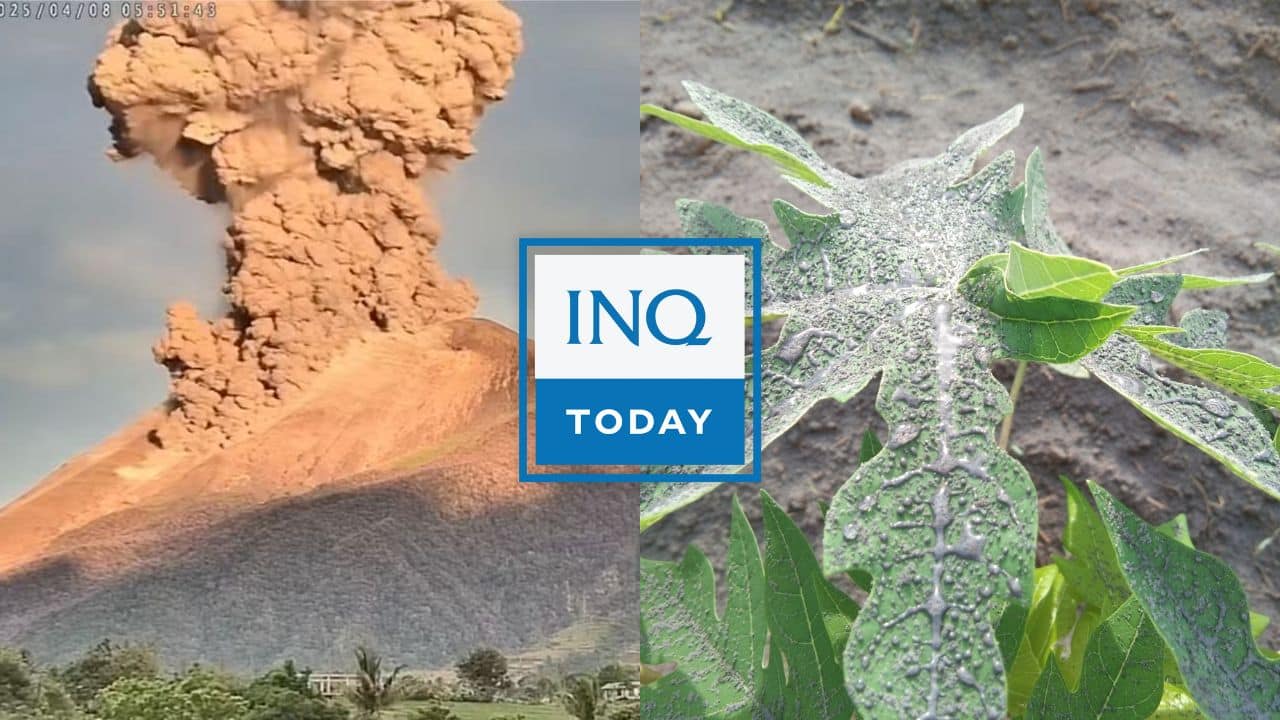The future, according to legendary venture capitalist Vinod Khosla , isn't a distant horizon we're slowly approaching—it's a landscape being actively sculpted by breakthrough technologies that will fundamentally transform how we live and work. From his early pioneering days co-founding Sun Microsystems to his current multi-billion dollar bets at Khosla Ventures , he has consistently demonstrated an uncanny ability to see around technological corners. In a recent wide-ranging discussion with entrepreneur Peter H.
Diamandis at the AbundanceSummit 2025 , Khosla outlined his vision for the next decade—one where artificial intelligence eliminates traditional programming, bipedal robots outnumber cars, and fusion energy powers our cities. For business leaders, investors, and professionals across industries, his insights offer both a roadmap and a wake-up call for navigating the accelerating pace of change. "In the past, users of computers have had to learn computers.

I think in the future, computers will learn humans," Khosla explains, articulating a fundamental shift in our relationship with technology. His seemingly paradoxical prediction of "no more programmers or everyone's a programmer" reveals a dual transformation already underway through his strategic investments. Cognition , one of Khosla's portfolio companies, is developing AI that functions like a software intern—one that can code autonomously and progressively handle more complex tasks.
Meanwhile, Replit , another company he's backed, enables users to create software using plain English commands, requiring no traditional coding knowledge. "Every employee can write their own applications without going to IT," Khosla predicts, envisioning a workplace where technological barriers dissolve and innovation becomes democratized. This isn't just a technical evolution—it's a complete reimagining of who creates software and how organizations operate.
Beyond coding, Khosla anticipates AI transforming virtually every professional domain. Within five years, he suggests, "every single professional can get five AI interns." Picture doctors supervising AI medical assistants, accountants collaborating with AI financial analysts, or lawyers working alongside AI legal researchers.
This abundance of AI expertise prompted Khosla to ask healthcare boards a provocative question: "If all expertise were free, how would you design a healthcare system?" His answer is equally provocative—doctors will play "a minor role in healthcare," focusing primarily on human connection while AI handles diagnostics and treatment recommendations. The power of existing AI systems like Deep Research already hints at this future. Khosla recounts how this tool independently produced the same 18-page analysis as his Chief of Staff (who holds a PhD in viral immunology), identifying identical disease indications.
In another instance, a retail CEO received a superior strategic analysis from AI in minutes compared to what their team had produced over several months. "You're not using this technology even a fraction of your potential," Khosla warns. He urges executives to integrate AI into every level of decision-making: "Is it open in every board meeting? Is it open in every executive meeting? Are you giving it the same challenges you're giving your team?" Perhaps most intriguing is AI's ability to provide novel perspectives.
Khosla suggests asking AI, "How would Steve Jobs answer this question?"—a technique for generating unconventional insights that has already yielded breakthroughs in fields where human thinking had stagnated for centuries. One of Khosla's most audacious predictions concerns the future of physical labor. "This business of bipedal robots will be larger than the auto industry within 20 years, and the auto industry doesn't know it," he states confidently.
He anticipates a billion bipedal robots by 2040—a figure he considers "an underestimate." These robots will work "24/7, not 8 hours with breaks," potentially outproducing the entire manual labor capacity of humanity. Khosla isn't alone in this vision—he notes that Elon Musk believes "the biggest part of Tesla will be Optimus," the company's humanoid robot project.
The economic implications are staggering. Robots could reach a price point of "$10,000 and be as essential as a smartphone," creating a global market that dwarfs today's automotive industry. For businesses heavily reliant on manual labor, this represents both an opportunity and an existential challenge.
Khosla's vision extends well beyond industrial applications. His approach to personal health exemplifies how technology is enabling unprecedented preventative care and longevity. Annually, he undergoes what he calls a "fountain upload" at Fountain Life, which digitizes "about 200 gigabytes of data" to detect diseases at their earliest, most treatable stages.
He also uses Viome, which analyzes his microbiome through "metatranscriptomics" to provide personalized dietary and supplement recommendations. Additionally, Khosla applies One Skin, a product utilizing a "10 amino acid peptide" that targets senescent skin cells, promoting more youthful appearance—a small example of how biotechnology is advancing anti-aging interventions. For Khosla, health is truly "the new wealth," and technology is making this wealth increasingly accessible.
The rise of AI agents acting on behalf of consumers will fundamentally disrupt advertising, Khosla believes. "The most consumer access of the internet could be agents acting for consumers," he explains. These AI representatives will filter out manipulative advertising, fundamentally changing how products reach customers.
"What is advertising? It's information...
to emotionally induce us into buying $300 pair of jeans when $30 Levis will do just fine. That's a filter the AI can apply," Khosla notes. This shift would return advertising to its original purpose—providing useful information rather than creating artificial demand.
The current model where "mostly capitalism is about making you buy things you had no intention of buying...
doesn't add to societal good" and appears increasingly vulnerable. The success of subscription-based models like ChatGPT, generating "more revenue per user than Google or Facebook," suggests we're already moving away from ad-dependent business models. Khosla's energy predictions are equally transformative.
His early investment in Commonwealth Fusion in 2018—when most venture capitalists dismissed fusion energy—reflects his confidence in this technology's commercial viability. "By 2030, nobody will be debating whether fusion's an economic possibility," he predicts. Commonwealth Fusion expects to demonstrate "positive net energy output by early 2027" and begin constructing its first commercial plant shortly thereafter.
Khosla envisions "repowering the boiler" of existing coal and natural gas plants with fusion reactors—a strategy that would accelerate deployment by avoiding lengthy permitting processes for new facilities. He's equally optimistic about "super hot geothermal" energy. By drilling deeper to reach temperatures of "400 or 450 degrees," the power output of geothermal wells can increase tenfold, making it "cheaper than natural gas.
" Significant deployment of this technology could begin "well before 2030," driven by advances in high-temperature drilling techniques. Khosla dismisses concerns about resource limitations, arguing that perceived shortages of minerals and metals are "a constraint because we are not looking or not looking with the right tools." He reveals ongoing efforts to explore mineral deposits a kilometer beneath Earth's surface, promising "plenty of abundance of minerals, metals, cobalt, lithium—whatever you're looking for.
" Perhaps most immediately relevant to everyday life is Khosla's vision for urban transportation. While enthusiastic about autonomous vehicles, he observes that simply replacing human drivers with AI would likely "increase" congestion rather than reduce it. His solution? "Driverless public transit that is personal.
" Imagine on-demand, autonomous vehicles that arrive whenever needed, travel directly to destinations without intermediate stops, and operate at minimal cost. This system could "10x the capacity of a street by building more capacity than light rail in a bicycle lane width." Such a network would allow regular traffic to flow unimpeded while dramatically improving transportation efficiency.
It could also "solve the housing problem too because you can live further away and have the same 30-minute commute," potentially transforming urban development patterns. Throughout his career, Khosla has embraced uncertainty and defied conventional wisdom. "Skeptics never did the impossible," he notes, emphasizing that true innovation requires both imagination and persistence.
His predictions may seem extreme to some, but Khosla's track record suggests they deserve serious consideration. For business leaders, investors, and professionals across industries, the message is clear: the exponential future isn't waiting, and neither should you. Those who recognize these technological shifts early and adapt accordingly will find themselves positioned for unprecedented opportunity.
Those who dismiss them risk being left behind in a rapidly evolving landscape where innovation is the only true constant. In Khosla's vision, technology isn't just changing our tools—it's reshaping our fundamental relationship with work, health, transportation, and energy. By embracing these transitions proactively, we can collectively shape a future of abundance rather than scarcity, inclusion rather than exclusion, and opportunity rather than limitation.
The exponential future is already here—it's just not evenly distributed yet..
Technology

The Exponential Future: Vinod Khosla's Bold Vision For 2030

This isn't just a technical evolution—it's a complete reimagining of who creates software and how organizations operate.















